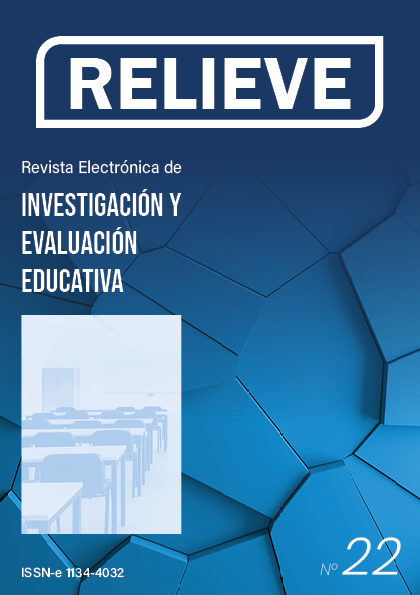Evaluation research in the 21st century: a more and more relevant tool for the educational and social development
DOI:
https://doi.org/10.7203/relieve.22.1.8164Keywords:
Evaluation research, Social development, Transdisciplinary discipline, Different methodologies, Participative strategies, Utility and use of the evaluation, Ethical-scientific rules, Meta-evaluationAbstract
After a wide revision of the recent publications about the subject, the present situation of evaluation research is analysed as a strategic tool for the decision making of the development and improvement of society and citizens’ quality of life in varied sectors such as education, health, economy, culture, social protection, public policies, etc. The scientific identity of the evaluation research is described and founded upon, stressing its transdisciplinary character, the rise of the evaluation of organizations and institutions, and the use of different methodologies and the importance of participative strategies. Also outlined is the utility and appropriate use of the evaluations as priority object of this kind of research, relying always on principles and ethical rules of scientific quality and on the corresponding meta-evaluative studies.Downloads
Downloads
Published
How to Cite
Issue
Section
License
The authors grant non-exclusive rights of exploitation of works published to RELIEVE and consent to be distributed under the Creative Commons Attribution-Noncommercial Use 4.0 International License (CC-BY-NC 4.0), which allows third parties to use the published material whenever the authorship of the work and the source of publication is mentioned, and it is used for non-commercial purposes.
The authors can reach other additional and independent contractual agreements, for the non-exclusive distribution of the version of the work published in this journal (for example, by including it in an institutional repository or publishing it in a book), as long as it is clearly stated that the Original source of publication is this magazine.
Authors are encouraged to disseminate their work after it has been published, through the internet (for example, in institutional archives online or on its website) which can generate interesting exchanges and increase work appointments.
The fact of sending your paper to RELIEVE implies that you accept these conditions.














